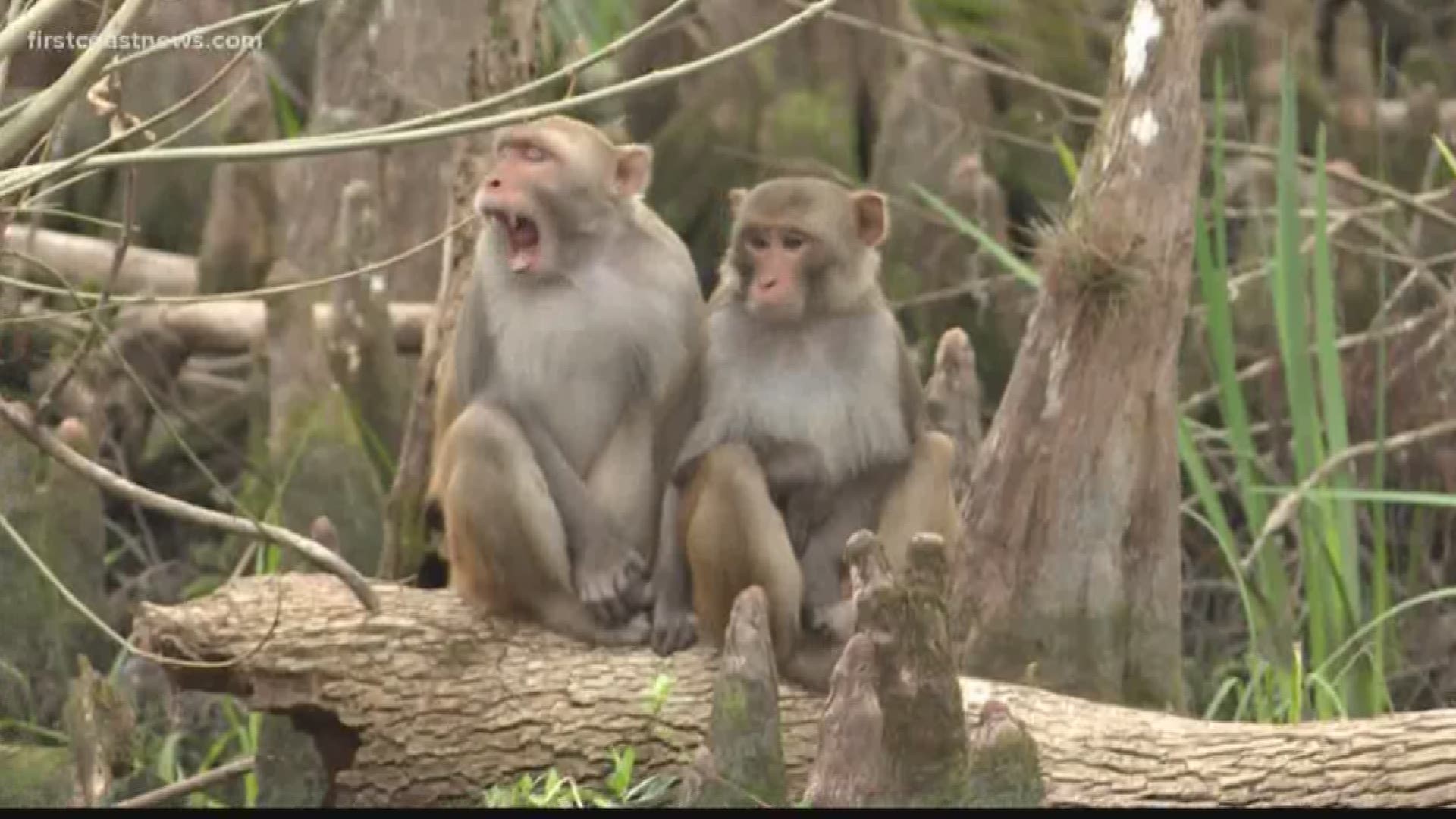The population of non-native rhesus macaque monkeys, some of which carry Herpes B is growing out of control, according to researchers at the University of Florida
“It’s very unlikely that you could contract this disease, but if you did, it’s potentially lethal,” said Dr. Steve Johnson, of the department of wildlife ecology and conservation.
He and a team of researchers discovered their numbers are booming.
“A couple of years ago there were probably around 175 animals,” Johnson said. “We estimated that by 2022, the population would double.”
The monkeys were released on an island near the Silver River in the 1930s, by a man named Colonel Tooey, who brought them in to boost tourism.
What he didn’t know, according to local lore, is that rhesus macaques can swim. They escaped the island and their numbers have been growing ever since.
“There are a lot more monkeys out here than people think there are,” said Debbie Walters, boat tour guide. “They’ll come right to the water, they’re not shy…if you have food, they can be aggressive and try to board your boat.”
In February one of the monkeys ran toward a woman in Silver Springs State Park, according to a video shot by JC Castillo, of Ocala.
Thankfully no one was hurt, but the monkeys have also been spotted outside the park.
One of the animals was hit and killed by a car on State Road 200, about 8 miles away from the park grounds.
“With the number of animals growing, you have the possibility of young males leaving the park boundaries,” Johnson said.
Florida fish and wildlife and the Department of Environmental Protection declined to be interviewed about efforts to address the booming population.
The DEP says it performs safety and maintenance checks every day to keep visitors safe and posts signs all over the park warning visitors not to approach the monkeys.
Johnson says the agencies in charge of the park need to do more than that to protect visitors, and until they do, people should protect themselves.
“If you’re at the park and you encounter one of these monkeys, you should observe it from a distance,” Johnson said. “Do not feed it, do not approach it. Just stay away from it.”

